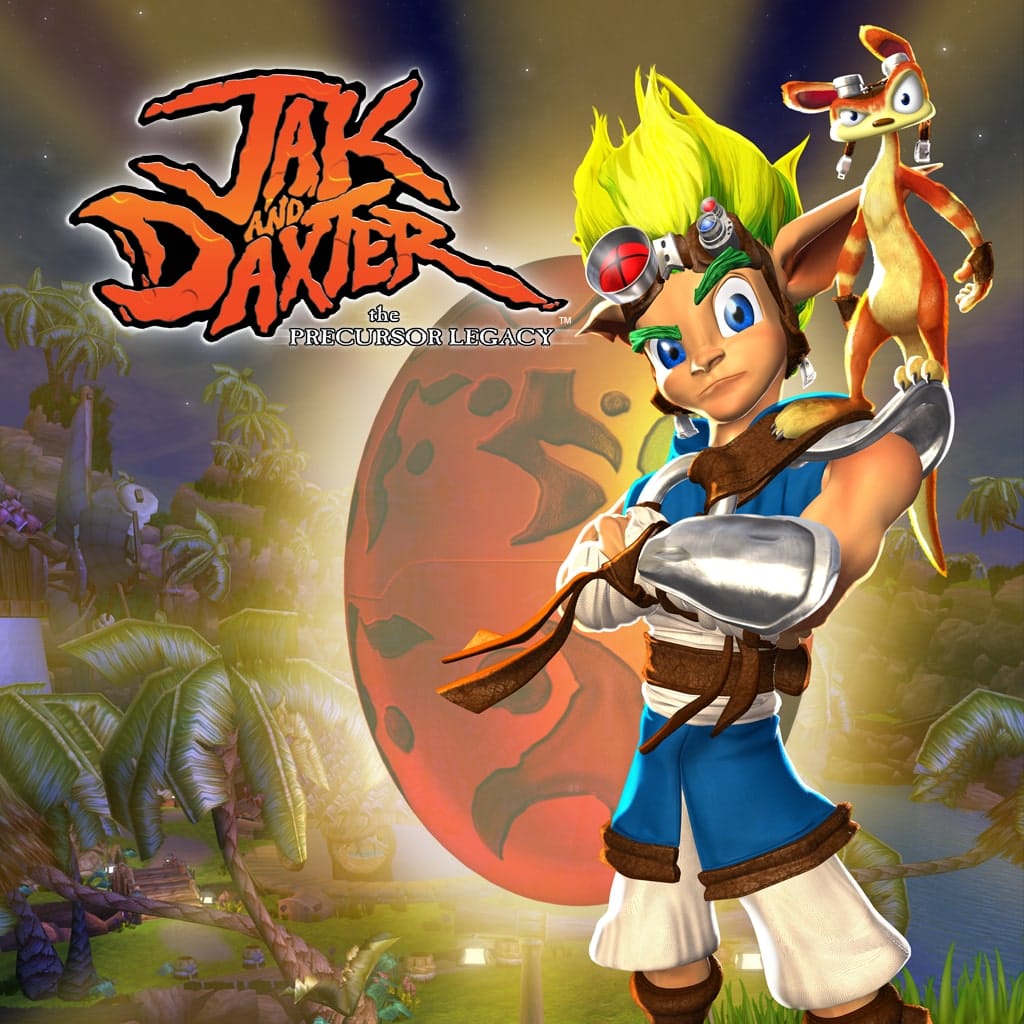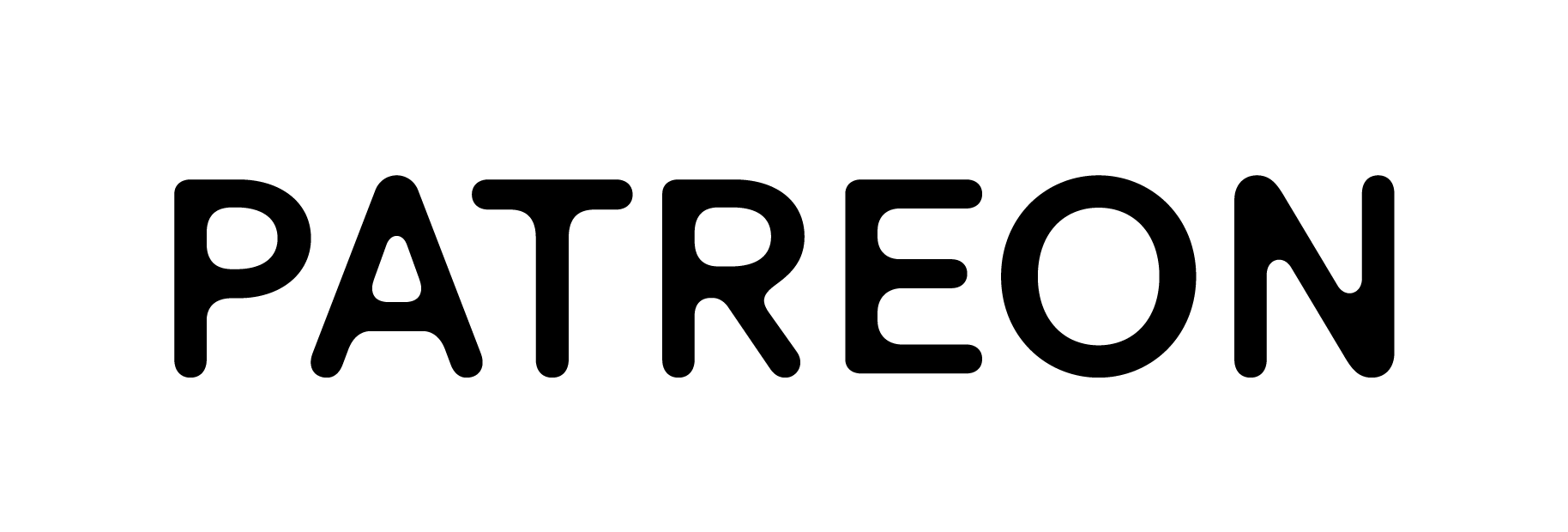"Jak and Daxter": Why am I So Disastrously Bad at Platformer Games?

This past week, I'd had Jak and Daxter recommended to me—a game that I had previously missed playing for more than the past two decades. Originally released on the PlayStation 2 in the year 2001, the game's advertising was everywhere around me, but I didn't take much interest in it. It seemed amusing and well-crafted enough, but I knew I probably was not going to enjoy the gameplay. Regardless, nearly 24 years later, I've found myself going back to visit it for the first time. I figured with enough distance between the release date and the present, there's really no reason not to give it a chance. And as I've been playing it, I have simply confirmed something that I have known about myself for years now.
I am so disastrously fucking bad at platformer games.
As far as I can tell, this is of no fault to Jak and Daxter or its developer studio Naughty Dog. In fact, in a lot of ways, the game is quite charming. The writing is quick, quippy, and clever. Character animations are cartoony, fun, and exaggerated. I rather like the day and night cycles of the world, which lets the player see the environments under different lighting as you play throughout its world. That world is bright, colorful, and vibrant. There's a lot about it that reminds me of a Sierra On-Line game titled Torin's Passage (a game I'd like to do some writing about one day). Though Torin's Passage is a point-and-click adventure rather than a platformer, and although the Sierra game features 2D animation rather than 3D animation, the similarities in tone persist. Both feature a Disney-esque hero and his fuzzy sidekick getting up to mischief, talking to a wide variety of big personality NPCs with lots of quippy language and jokes. There is a familiarity in Jak and Daxter that warms me up to the idea of spending more time with it.
Which is probably the only reason why I stuck the game out, because if it had been any other setting, I may have found myself rage quitting on day one. To reiterate, I do not believe that this is the fault of the game. Largely, anyway. Honestly, I wholly believe that the fault lies in my own brain.
I do not think that every person can possibly be good at everything. Some people are clearly better designed to do certain things than other people. For me, I quite naturally took to rhythm and music games. My parents were singer-songwriters, and they put me into piano lessons while in Kindergarten, keeping me there for ten years. In that time, I eventually started taking college-level music theory courses on college campuses while still attending high school and participated in statewide competitions. At the same time, I found myself wrapped up in three separate honors choir ensembles in high school. By that point, I had experienced intense burnout, but the end result was that rhythm and music theory had been drilled into me, in some cases somewhat against my will. And when I discovered rhythm games, and especially Dance Dance Revolution, I finally found something that made all that time learning things I didn't always necessarily want to be learning worth it. I intrinsically understood what rhythm games like DDR and Guitar Freaks were asking me to do, and it didn't take me tremendously long to learn the ropes and move up in difficulty settings. But because of my musical background, I would watch other people play who did not have that same experience, and see them absolutely floundering, struggling to understand what Beginner's Mode would ask them to do. My head would reel, watching as people did not understand that they had to wait for the arrows on the screen to completely reach the stationary arrow indicators at the top of the monitor before stepping on their corresponding arrow. I'd groan watching people return their feet to the center of the dance pad between stomping on arrows—a thing you do not need to do in order to correctly perform the required dance step.
But the truth that I was not yet accepting was that it seemed so trivial to me because I had experience that not everyone else had. Not everybody is built to take so naturally to rhythm games. And even in my case, I may not have been so much of a natural had I not had well over a decade of musical training under my belt before I started playing these games. I was completely overlooking something so obvious—that not everybody gets the same life experiences, or even the same brain wiring. Not everybody starts in the same position. So some things come more naturally to some than they do to others.
If video game genres were stats on a character sheet, my dump stat would have been rhythm games. Meanwhile, I spent a handful of points on RPGs, and completely and utterly ignored platformers, making me the worst party member to have if you need to complete tasks in a platformer game. And as such, my gameplay experience with Jak and Daxter was brutal.
The website How Long to Beat lists Jak and Daxter's main story playtime by most players to be around 10 hours. If you're a completionist, that time might rise to 12 hours. Heck, the person who recommended that I tried the game said they obtained their Platinum trophy in 4 hours. So how long did it take me? 20 hours. About twice as long as most players.
I often felt like a crazy person, doing the same thing over and over again and not getting anywhere. I would feel so sure that I was making mistakes and then learning from them and then try a different approach, only to find I was either dying the exact same way anyway, or that I had somehow found entirely new ways to die. It was difficult to tell what parts of the game were my fault, and what parts were actually just part of the way the game was designed that could have been improved. I often felt like I did not have as much control over the camera in some situations as I would have liked. Actually, this is not totally unique to Jak and Daxter. I think this was true of a lot of PlayStation 2 games. There was a long period of time where developers where just learning what they could and should do, and to that extent I am forgiving of the final product. It's just that, without a little bit better control of the camera—specifically the ability to tilt up and down rather than just around Jak in a circle—I struggled to gauge distance between things. Depth was a little difficult to comprehend, and that's not an issue I typically have in the real world. I'm not particularly good at 2D platformers, either, but I uniquely struggle with 3D platformers specifically for this reason. It's not a real 3D space, so I can't tell how far away anything is.
Meanwhile, maybe I should have picked a different controller configuration or remapped some buttons. I played the game with its default controller configuration, but maybe I should have tried something else, though it's hard to say if it would have made much of a difference. Like many games, there is a double-jump in Jak and Daxter, and maybe I was just bad at executing it at important moments, but sometimes I'd press the X button once to jump, then press it again in an attempt to double-jump, and Jak just... would not jump a second time, sending me plummeting into a canyon. I figure it very likely was operator error, and yet I never quite grasped was I was doing wrong in those moments to cause it. Meanwhile, shoulder buttons will let you dodge roll forward, and if you immediately press X afterwards, you'll do a large forward jump out of it. And a lot of times, again, I must have just been obscenely bad at the timing, because the jump after the roll just would not happen. Not only that, but that same button combination but timed slightly differently will get you to do one really large high jump, but—you guessed it—I often could not get that to fire off correctly, either. It was like half the time it could only figure out I wanted to press either a shoulder button or the X button, but not both. For these reasons, I wonder if somehow I handicapped myself by not remapping some buttons. If I could have confidently fired off these commands, would I have had a better time? Maybe, hard to say.
But the truth of the matter is, even if those things were fixed, I'm still historically a bad platform gamer, particularly in 3D settings. I have learned over the years that I have especially bad spatial reasoning. This isn't just in video games, but in real life as well. For example, navigating to new places in the real world, especially while driving, is often something I mess up. I'll miss an exit or a turn, drive just a little bit too far, and then find I have to turn myself back around to get back on track in the right direction. So long as I give myself enough time to find a place, I don't really care, I know I'll get there eventually, although this flaw of mine often gets me scolded by others. I also struggle to remember how to get someplace unless I've been to that location time and time again. Even if I've been there before, that won't guarantee that I'll remember how to get back there the next time I need to show up. It's gotta be something I do practically daily for an extended period of time before it becomes something I can travel without ever thinking about it.
So Jak and Daxter became especially difficult for me because it does not have an in-game map. There was quite a bit of back-and-forth for me, which was partially by design, and partially because I would forget how to get back to some place I knew I had already been. Too many routes looked too similar in my brain to other routes, and then I'd forget whether I needed to go left or right, forward or backward. I'll eventually just have to hug a wall and hope that it gets me where I need to go, or at least to someplace I haven't been before.
To be clear, I don't really rightly know how to solve all these problems. These are clearly issues unique to me specifically. User error, struggling with in-game depth perception, getting lost without a map—honestly, the only one that maybe could have been solved easily was probably the map. But to be fair, it's not like it's a super big game or anything. I assume most routes to most people are fairly intuitive to understand, but me? Nah, I'm like the ants at the beginning of A Bug's Life who have a leaf drop in front of their path and suddenly they're screaming about how they're lost. That's barely an over-exaggeration for my life experience. Just for the hell of it, the other day while playing the game and preparing to write this article, I found and took an online spatial reasoning test. I only got 60% of the questions right. My brain seemingly cannot figure out how to piece 3D geometry together without putting my hands on it directly, and can't figure out what shapes look like when unfolded, unless it's a really simple shape, I guess.
It's so funny, because actually there is one platformer game that I like a whole lot and am actually very good at, and that's Aladdin for the Super Nintendo (and I do specifically mean for the SNES and not the Genesis, as those were two very different games). As far as platformers go, it's probably a pretty easy one. Comparing it to other Disney platformers like The Lion King and Toy Story, those two games are ridiculously difficult. There are still people who to this day rage quit Virgin's The Lion King (on either SNES or Genesis). But that's not the case for Aladdin. In fact, I don't know many people who've even played the SNES version, certainly not over the Genesis game. But when I was a kid I played it, like, a LOT. At first, yes, it was hard. I remember my dad had to help me get past a level where you ride the magic carpet out of the Cave of Wonders, since it was something I just couldn't get myself through on my own. But with enough time and experience, I realized it was just the same pattern over and over and over again. I played the game so often that I learned the pattern exactly, and learned to avoid hitting walls and falling rocks. From that point on, it's actually become one of the games I'm best at, and would almost dare attempting speed runs. I've made plans to attempt to play it using a variety of awkward controllers other than the Super Nintendo controller, just for fun.
The difference surely is the repetition. I played that game so often that I know exactly where everything is, I know exactly when and how to press the buttons in what ways. It's like memorizing your drive to work to the point that there are some days where you don't even remember driving there at all and instead only realize you've gotten to work once you're in the parking lot because you've turned your brain on autopilot. Perhaps these days I don't have the time or the patience for that kind of repetition. I'm not a kid on summer vacation dedicating all my time to jumping on the heads of my enemies. And platformers surely expect you to spend a lot of time playing, dying, and repeating that gameplay as part of the learning experience. If you play it enough, eventually you'll know exactly what it is you're supposed to be doing. You'll know not to make the same mistake you made last time.
And yet, even with all the failures and the repetition while playing Jak and Daxter, I feel like I was only learning so much. I just kinda kept hoping that maybe the next time I wouldn't end up with the same result, knowing I needed to get to a certain place but for some reason not managing to jump correctly, not managing to gauge my distance correctly, not managing to execute button commands correctly. It felt like neurons misfiring in my brain, and although it's probably not the game's fault, it just made me feel really, really dumb. One thing the game has going in its favor is that it's at least particularly forgiving about dying. If I was given only so many chances to make a jump, I think I would have given up only a quarter of the way through the story. But obviously it was frustrating to be 75% or more of the way through a given obstacle course, fall off, and then have to start the entire obstacle course all over again from the beginning, never really sure if I was going to successfully jump to even the first moving platform a second time because I had only gotten lucky the first time I cleared it.
My experience is clearly an outlying one. The game has had largely positive critical reception, with some of the highest ratings of its entire franchise. If your brain is already tuned into 3D platforming, I'm sure you're gonna have a good time. I'd imagine most people who've already played the game before reading this have also had positive experiences with it. But I think I just have to accept that not all people can be good at all things, and 3D platformers are just one of those things I am very much not good at. I finished Jak and Daxter, but not at 100%, and I can't say that I have plans to go back and hit any completionist goals. I may largely need to stick with RPGs, rhythm games, and action/adventure brawlers.
Since my understanding is that there are a handful of changes introduced in Jak 2, I'm not wholly unwilling to try my hand at Jak and Daxter's sequel. But I do worry that I'm gonna have a really similar experience, and I'm just prepping myself for that so that I don't find myself more frustrated than I need to be.

Thank you to all of my Patreon subscribers for making writing about my thoughts and experiences possible. Blogs like this are able to happen more often with your kind support. If you are interested in becoming a member and seeing the perks available, please consider subscribing to my Patreon.
Special thanks to the following Phobos and Mars tier members: Scott Sandler, BetaRayILL, Mannekwin, and MB.
Extra special thanks to Kasei Gumi members Joe Goes Over, Gomer, and a calm sea.

